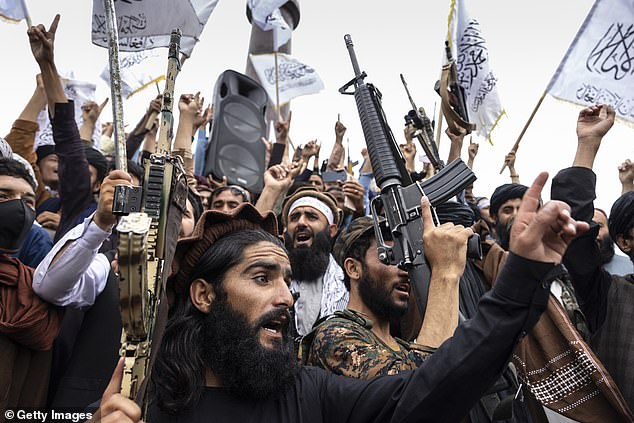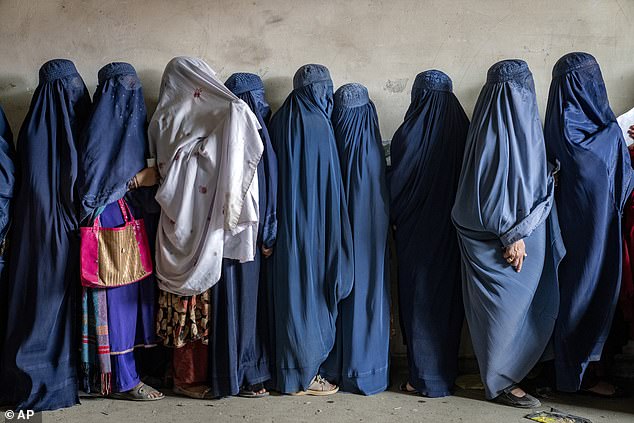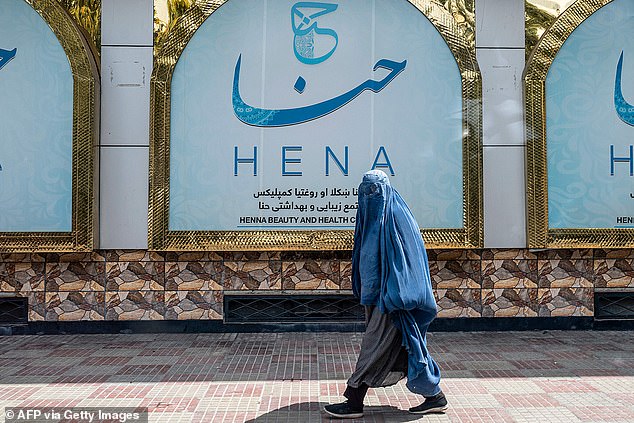An Afghan human rights activist was filmed being gang-raped and tortured by gunmen in a Taliban prison, according to a shocking report.
Reports of sexual violence against women and girls in Afghanistan have been on the rise since the Taliban retook power in 2021.
However, the video – Seen by the guardian – It is believed to be the first tangible evidence showing that these crimes are being committed in the country.
The British publication said the video shows the young woman being ordered to take off her clothes. She is then seen being raped multiple times by two men.
She tries to cover her face with her hands while being attacked, The Guardian said, and one of the two men “forcefully pushes her away” when she hesitates to follow his orders.
At one point in the video, he is told: “The Americans have screwed you all these years and now it’s our turn,” the paper reported.
An Afghan human rights activist was filmed being gang-raped and tortured by gunmen in a Taliban prison, according to a shocking report. Pictured: An Afghan woman wearing a blue burqa is seen in Kabul on July 25, 2023 (file photo)
The woman in the video told reporters from The Guardian and Rukhshana Media (an Afghan women’s media organisation) that she was arrested for taking part in protests against the Taliban regime and held in prison.
The video was filmed with the mobile phone of one of the two male attackers.
The woman, who has not been identified, believes it was deliberately recorded so it could be used as an excuse to shame her into stopping her criticism of the government.
In the video of the attack, she can be seen standing naked with her face visible, The Guardian said, making her identifiable.
She has since left the country but said the video was sent to her after she fled to intimidate her after she criticised the Taliban.
The woman was told the video would be shared widely on social media if she continued to protest against the Taliban and would be sent to her family.
The report on the video follows the publication of accounts from teenage girls and young women who say they have been detained by the Taliban for wearing an “inappropriate hijab” and subjected to violence and sexual assault.
The Taliban have imposed a strict interpretation of Islam, and women are subject to laws that the UN characterizes as “gender apartheid.”
According to Zan Times, the Afghan news service, “untold numbers of young women are arrested for what the Taliban consider violations of their dress code.”
In more than one case, arrests and subsequent assaults have led to suicides, the publication noted.
The body of one of the victims was found dead in a canal weeks after her arrest.
In May 2022, nine months after regaining control of the country following the withdrawal of US and Western troops, the Taliban decreed that all Afghan women must cover themselves from head to toe. Only their eyes could be left uncovered.

Reports of sexual violence against women and girls in Afghanistan since the Taliban regained control of the country in 2021 have been on the rise. Pictured: The Taliban mark the first anniversary of the Taliban taking power in 2022
Earlier this year, the UN called on the Taliban to end their crackdown on the “bad hijab”.
The Office of the United Nations High Commissioner for Human Rights (OHCHR) said at the time: “Women and girls were reportedly held in overcrowded spaces in police stations, receiving only one meal a day and some were subjected to physical violence, threats and intimidation.”
Meanwhile, Taliban authorities have been told that women must be included in public life, UN Deputy Secretary-General Rosemary DiCarlo said on Monday, as she defended the decision to sideline civil society groups at official talks in Doha.
Human rights organisations have sharply criticised the UN’s controversial decision to exclude groups, including women’s rights activists, from the two-day summit on Afghanistan as the price for the Taliban government’s participation.
“The authorities will not sit down at the table with Afghan civil society in this format, but they have heard very clearly the need to include women and civil society in all aspects of public life,” DiCarlo said at a news conference in Doha.
The UN-organized meeting began on Sunday and is the third such summit to be held in Qatar in just over a year, but the first to include the Taliban authorities who seized power in Afghanistan for the second time in 2021.
The talks were to discuss increased engagement with Afghanistan and a more coordinated response to the country, including economic issues and counternarcotics efforts.
Following the return of the Taliban to power, the international community has had to confront its strategy for dealing with Afghanistan’s new rulers.
The Taliban government in Kabul has not been officially recognized by any other government since taking power in 2021.
They turned down an invitation to the Doha talks in February, insisting on being the sole Afghan representatives, excluding civil society groups, but their status was accepted in preparations for this latest round.

The Taliban have imposed a strict interpretation of Islam, with women subject to laws characterised by the UN as “gender apartheid”.
DiCarlo, who chaired the UN talks in the Qatari capital, said she “hopes” there will be “a re-examination” of the Taliban government’s policy on women in public life, including girls’ education.
Delegations from the UN and international organisations will have the opportunity to meet tomorrow, after the closing of the main meetings, with representatives of civil society, including women’s rights groups.
But Amnesty International chief Agnes Callamard said in a statement ahead of the talks that “giving in to the Taliban’s conditions to secure their participation in the talks would risk legitimising their institutionalised system of gender-based oppression”.
Taliban authorities have repeatedly claimed that the rights of all citizens are guaranteed by Islamic law.


